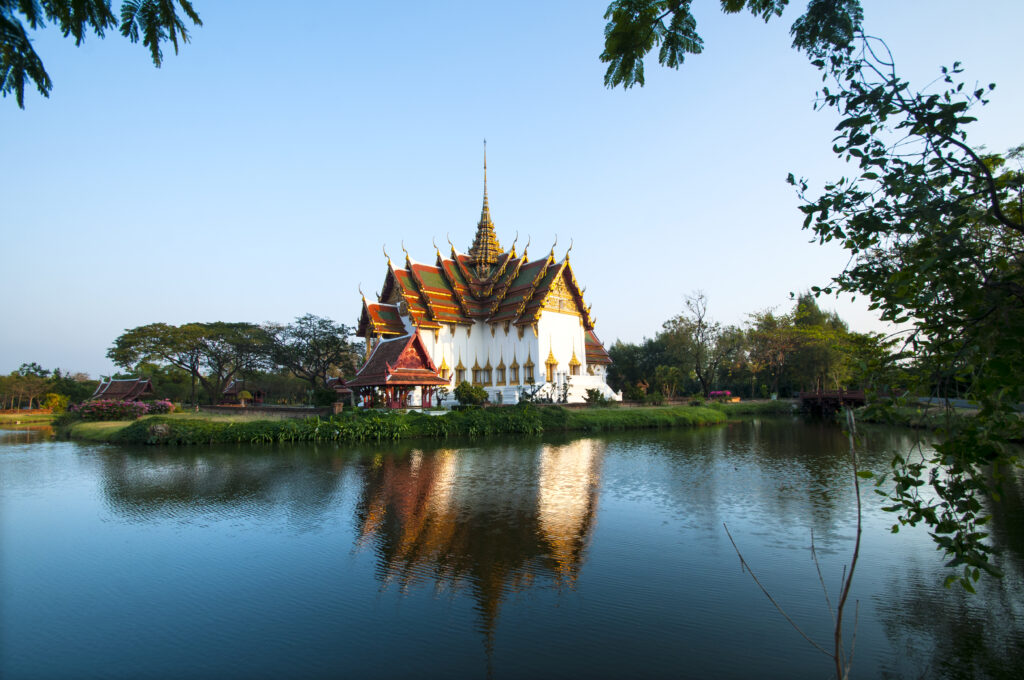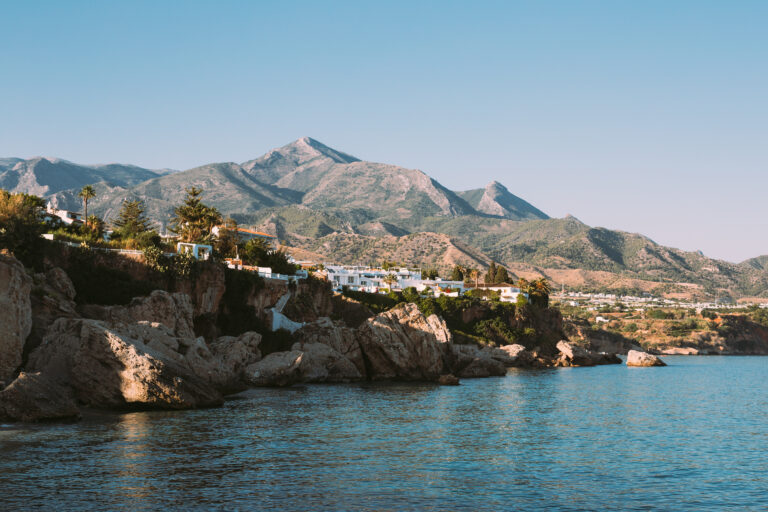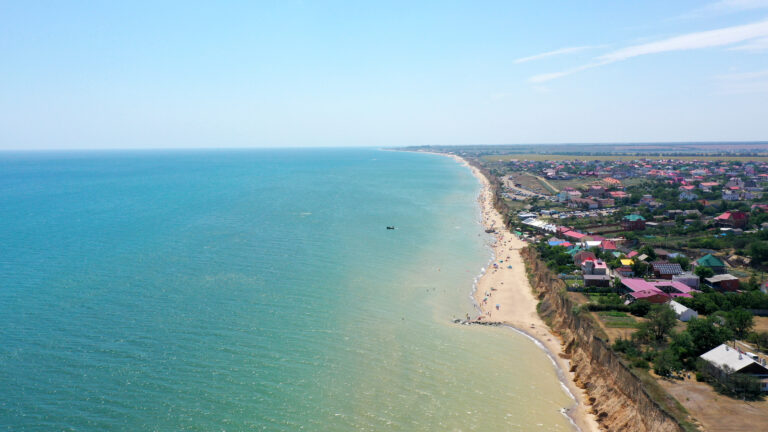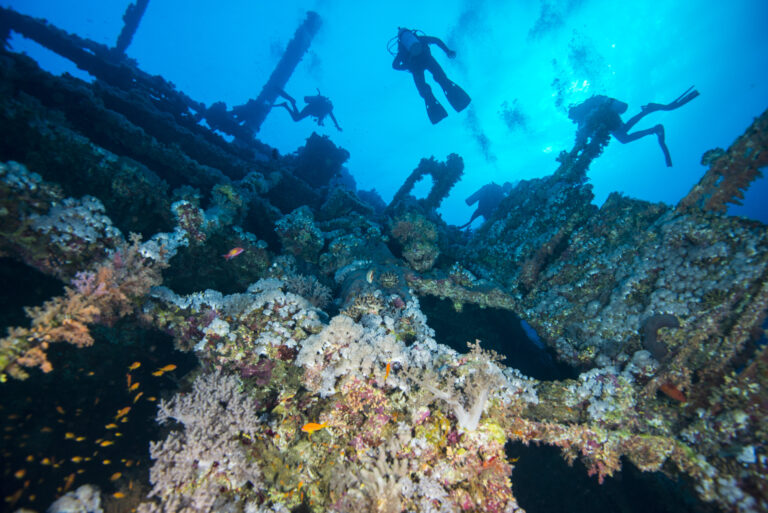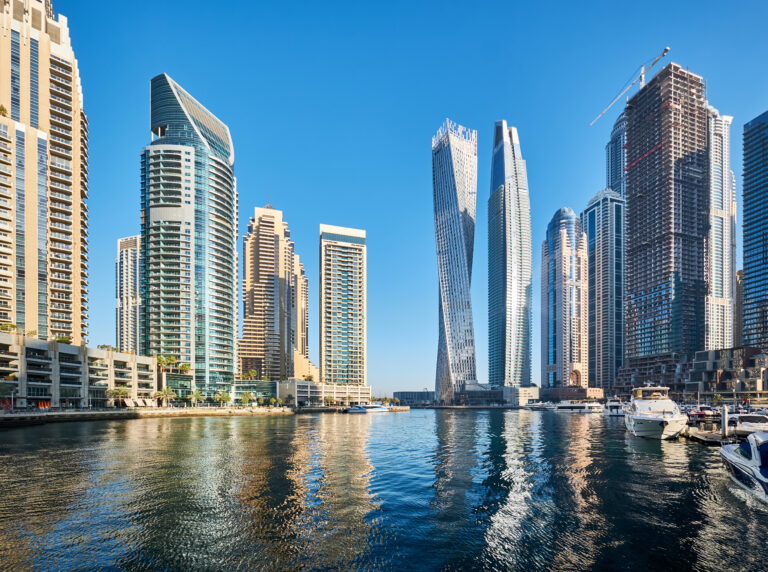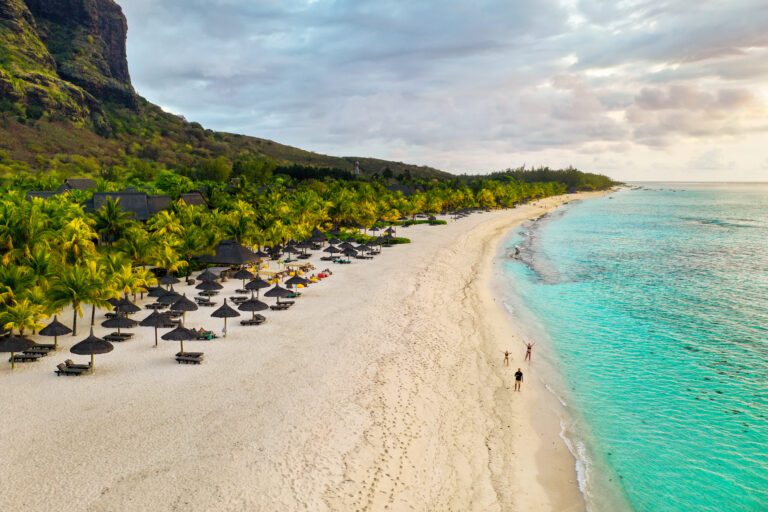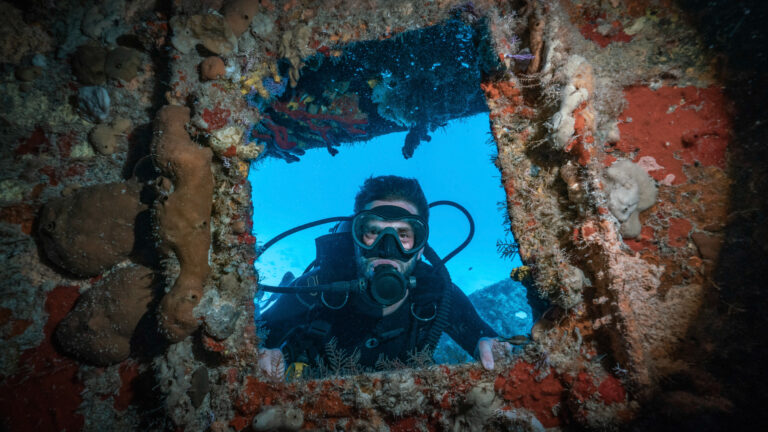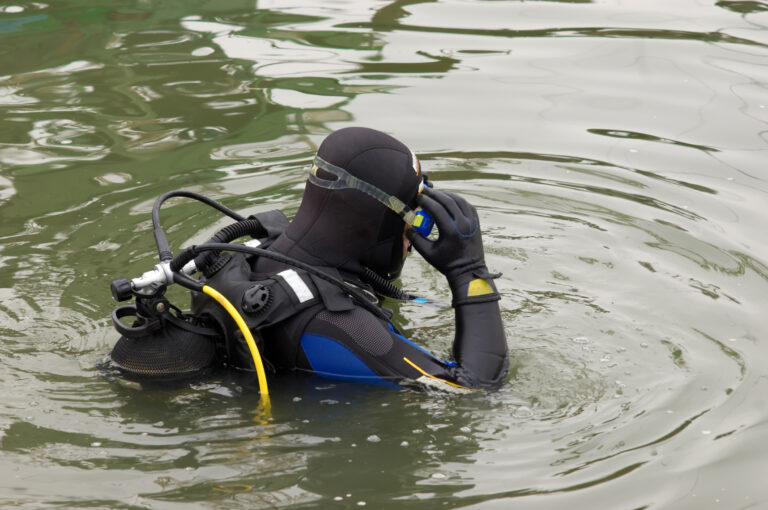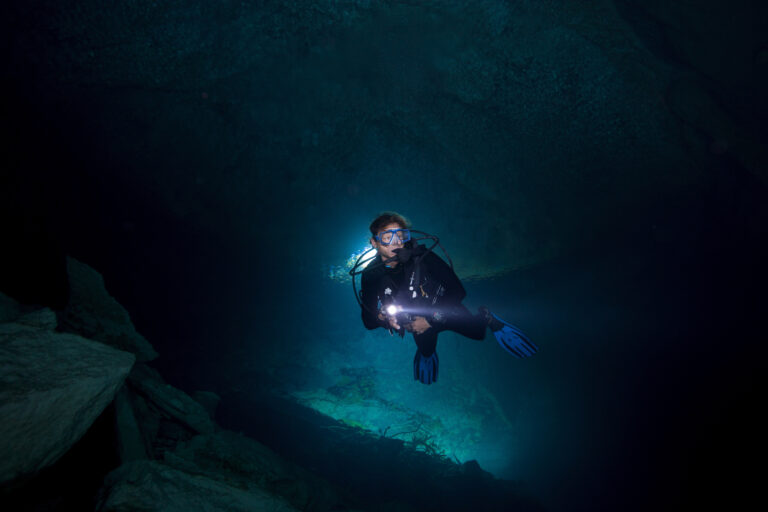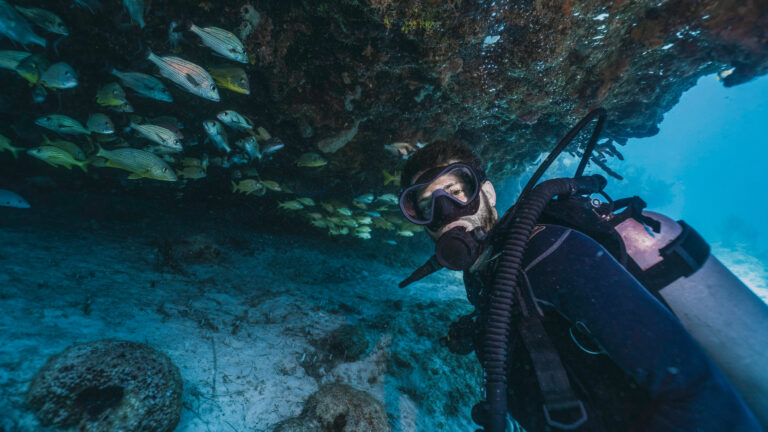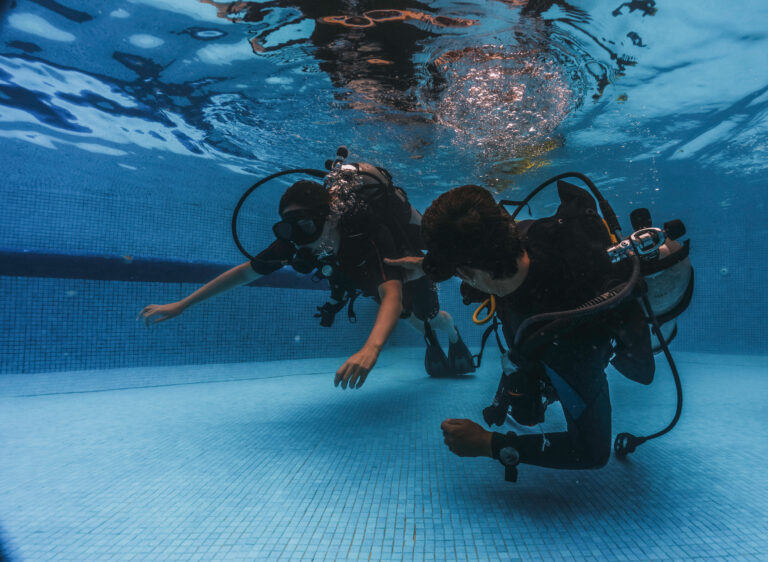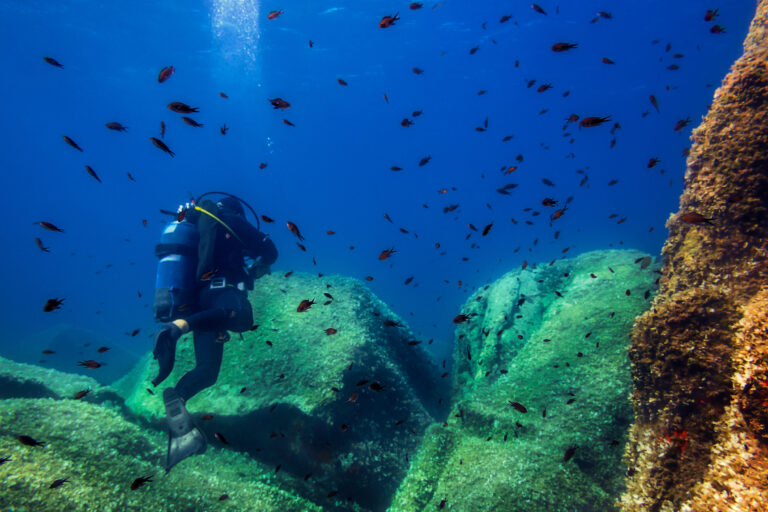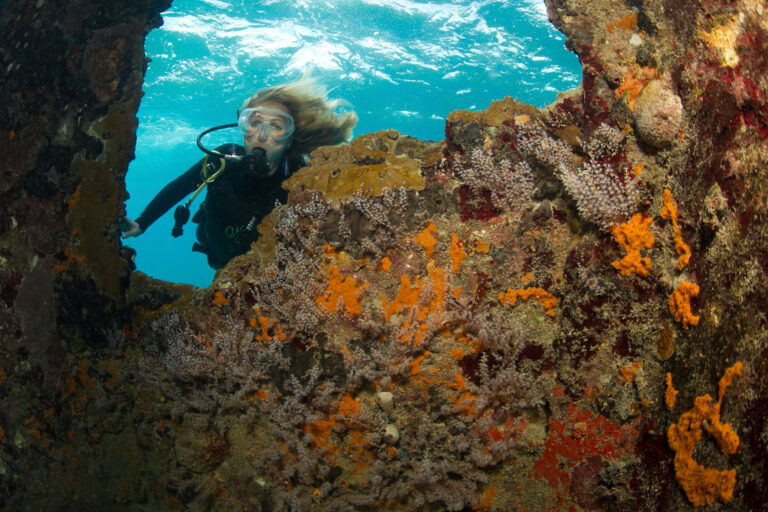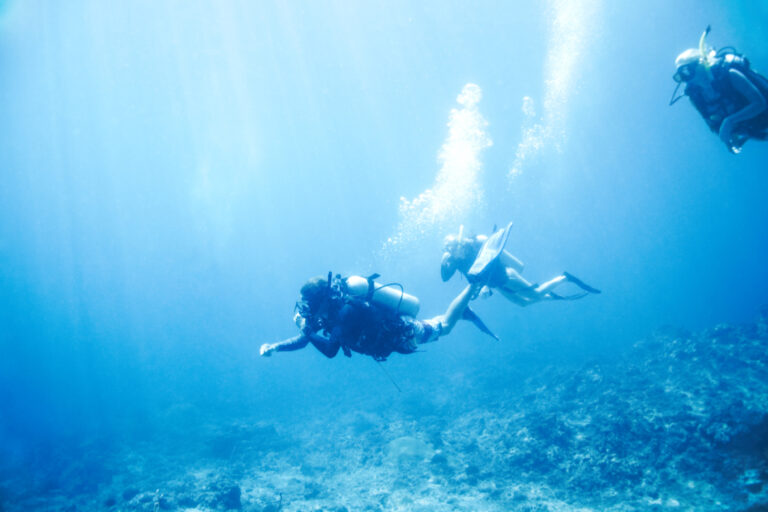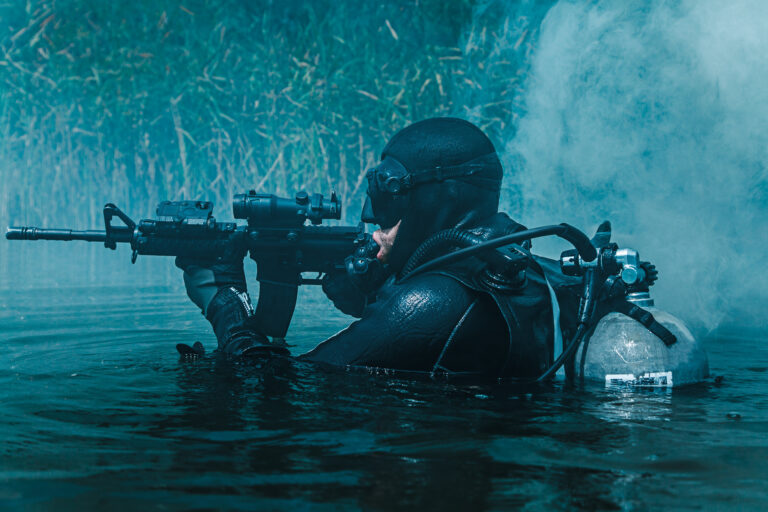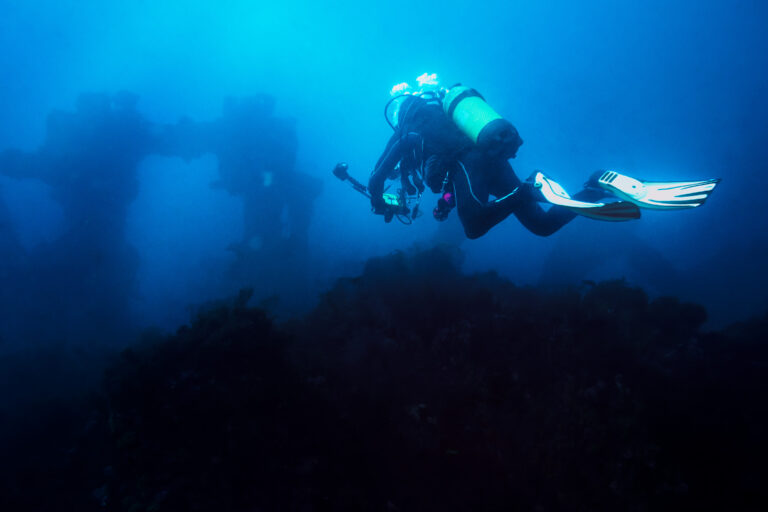SCUBA DIVERS’ TRAVEL GUIDE TO Thailand
Thailand is a scuba diver’s paradise, with a rich and diverse marine life, stunning coral reefs, and warm tropical waters. Whether you are looking for adventure, relaxation, or culture, Thailand has something for everyone. You can explore the underwater wonders of the Andaman Sea and the Gulf of Thailand, where you can encounter whale sharks, manta rays, turtles, and colorful fish. You can also enjoy the vibrant and friendly culture of Thailand, with its delicious cuisine, ancient temples, and lively nightlife. Thailand is a destination that will leave you breathless and wanting more.
LOCATION AND GEOGRAPHY
Thailand, a tropical scuba diving haven, is nestled in the heart of Southeast Asia, bordered by Myanmar to the northwest, Laos to the northeast, Cambodia to the southeast, and Malaysia to the south. Its extensive coastline stretches over 3,000 kilometers along the Andaman Sea to the west and the Gulf of Thailand to the east. The country’s diverse underwater landscapes are as varied as its terrestrial geography, featuring everything from gentle sloping coral reefs to dramatic drop-offs, caverns, and wrecks. The Andaman Sea is renowned for its crystal-clear visibility and the Similan Islands, which offer some of the best dive sites in the world, while the Gulf of Thailand is celebrated for its accessibility and vibrant marine life. Thailand’s geographical position between two bodies of water ensures a rich mix of marine biodiversity, with the warm tropical waters fostering an environment where both large pelagic species and tiny macro critters thrive, making it an ideal destination for divers of all levels and interests.
VISA AND ENTRY REQUIREMENTS
Before embarking on your underwater adventure in Thailand, it’s essential to ensure that your travel documents are in order. Most travelers from Western countries, including the United States, Canada, the United Kingdom, and Australia, can enter Thailand without a visa for stays of up to 30 days if arriving by air, or 15 days if arriving by land, under the Visa Exemption Rule. However, if you plan to stay longer, you’ll need to apply for a tourist visa, which typically allows a stay of up to 60 days and can be extended for an additional 30 days at an immigration office within Thailand. Ensure your passport is valid for at least six months beyond your intended stay and has at least one blank page for entry and exit stamps. Always check the latest entry requirements with the Royal Thai Embassy or Consulate as regulations can change, and some nationalities have different agreements. Additionally, proof of onward travel may be required upon entry, so have your return ticket or an itinerary for leaving Thailand ready to present if asked by immigration officials.
GETTING TO Thailand
Getting to Thailand for an unforgettable scuba diving adventure is a straightforward endeavor, thanks to its well-established tourism infrastructure and status as a major travel hub in Southeast Asia. International travelers typically fly into Bangkok’s Suvarnabhumi Airport (BKK), which is serviced by a multitude of airlines offering direct or connecting flights from around the globe. From Bangkok, divers can take domestic flights to popular coastal destinations such as Phuket, Krabi, or Koh Samui, where some of the country’s most renowned dive sites are just a boat ride away. Alternatively, for those looking to explore the Gulf of Thailand, flights to Chumphon or Surat Thani provide access to the diving paradises of Koh Tao and the surrounding islands. Overland travel by bus or train is also an option for the more adventurous traveler, offering a scenic route to the coastal regions. Once in Thailand, a range of local transportation options, including taxis, buses, and ferries, make reaching your final dive destination both convenient and part of the adventure.
BEST TIME TO DIVE
The best time to scuba dive in Thailand is generally from November to April, when the Andaman Sea is at its calmest and visibility is at its peak, often exceeding 30 meters. During this period, the weather is dry and sunny, providing ideal conditions for exploring the underwater wonders of popular dive sites like the Similan Islands, Richelieu Rock, and the Phi Phi Islands. However, for those looking to explore the Gulf of Thailand, including Koh Tao, Koh Samui, and Koh Phangan, the optimal diving season shifts slightly to March through October, avoiding the heavier monsoon season on this side of the peninsula. It’s worth noting that while the monsoon can affect diving conditions, many dive sites remain accessible year-round, offering opportunities to encounter a diverse array of marine life, from whale sharks and manta rays to vibrant coral gardens, regardless of the season.
ACCOMMODATION OPTIONS
Thailand, a scuba diver’s paradise, offers a diverse range of accommodation options to suit every preference and budget. From the bustling streets of Bangkok to the serene beaches of the Andaman Sea, divers can choose from luxurious resorts with on-site dive centers, eco-friendly bungalows steps away from coral-rich waters, or liveaboard boats that provide the ultimate underwater adventure. In popular diving destinations like Koh Tao, Phuket, and the Similan Islands, you’ll find accommodations specifically catering to divers, including gear storage and rinse areas, as well as knowledgeable staff who can arrange dive trips and offer local tips. Budget-conscious travelers can opt for hostels and guesthouses that often have partnerships with local dive shops, ensuring a seamless diving experience. Whether you’re looking for the convenience of a dive resort, the charm of a beachfront villa, or the camaraderie of a shared liveaboard journey, Thailand’s accommodation options are as varied and vibrant as its marine life.
DIVE OPERATORS AND DIVE SHOPS
Thailand’s underwater world is a kaleidoscope of vibrant coral reefs, intriguing wrecks, and diverse marine life, making it a magnet for scuba enthusiasts. As you plan your aquatic adventure, you’ll find a plethora of dive operators and shops, especially in hotspots like Phuket, Koh Tao, and the Similan Islands. These establishments range from eco-friendly boutiques to PADI 5-star dive centers, offering services for beginners to technical divers. Many shops provide comprehensive packages that include equipment rental, boat dives, and certification courses taught by experienced, multilingual instructors. It’s essential to choose a reputable operator that prioritizes safety, maintains equipment to high standards, and respects the delicate marine ecosystem. Look for operators with strong customer reviews, a commitment to small group sizes, and a record of environmental stewardship. Whether you’re looking to explore the gentle currents of the Andaman Sea or the Gulf of Thailand’s hidden gems, the right dive shop can make your underwater journey unforgettable.
TRANSPORTATION WITHIN Thailand
In Thailand, transportation options to reach and explore the country’s premier scuba diving destinations are as diverse as the underwater landscapes awaiting you. For the far-flung Andaman Sea islands, such as the Similan and Surin archipelagos, liveaboard boats offer direct access to remote dive sites, while speedboats and ferries are the mainstays for day trips from coastal hubs like Phuket and Krabi. On the Gulf of Thailand side, locations like Koh Tao and Koh Samui are served by a combination of buses or trains from Bangkok to Chumphon or Surat Thani, followed by high-speed catamarans or traditional ferries. Within the islands themselves, songthaews (shared pick-up trucks) and motorbike rentals provide flexible and affordable means to shuttle between dive shops, accommodations, and beaches. For those seeking a seamless experience, many dive operators arrange complete transfer packages, ensuring smooth transitions from the bustling streets of Bangkok to the tranquil underwater oases. Always remember to confirm schedules and book in advance during peak seasons to secure your spot on these popular routes.
CURRENCY AND PAYMENT METHODS
In Thailand, the local currency is the Thai Baht (THB), which is essential for everyday transactions, including those related to scuba diving excursions. While major dive shops, resorts, and liveaboards in popular diving destinations like Phuket, Koh Tao, and the Similan Islands may accept credit cards (Visa and MasterCard being the most widely accepted), it’s advisable to carry cash for smaller dive operators, tips, and incidental expenses. ATMs are readily available in tourist areas, but they may be scarce on remote islands, so plan accordingly. Be mindful of foreign transaction fees and inform your bank of your travel plans to avoid any issues. Additionally, mobile payment platforms like PromptPay are gaining popularity, and some businesses may accept them. Always check with your dive operator about their preferred payment methods before your trip to ensure a smooth and enjoyable diving experience in Thailand’s vibrant underwater world.
LANGUAGE AND COMMUNICATION
When diving in the enchanting waters of Thailand, effective communication is key to a safe and enjoyable experience. While the local dive community is well-versed in English, especially in tourist-heavy areas like Phuket, Koh Tao, and the Similan Islands, learning a few phrases in Thai can enrich your interactions with local dive operators and crew. Basic expressions such as “Sawasdee” (hello) and “Khop Khun” (thank you) are appreciated and can foster a friendly rapport. Underwater, divers universally rely on hand signals, and it’s crucial to review these with your dive buddy and guides before submerging, as some variations may exist. Additionally, dive briefings are typically conducted in English, but should you need assistance, multilingual instructors are often available to ensure that all safety information is clearly understood. Embracing these communication nuances will enhance your diving adventure amidst Thailand’s vibrant coral reefs and diverse marine life.
LOCAL CULTURE AND ATTRACTIONS
Thailand’s vibrant culture and myriad attractions offer a mesmerizing complement to its underwater wonders, making it an exceptional destination for scuba divers seeking a rich surface interval. Beyond the allure of its crystal-clear waters and abundant marine life, Thailand boasts a tapestry of traditions, from the serene gold-spired temples and the sacred rituals of orange-robed monks to the pulsating beats of Bangkok’s night markets. Visitors can indulge in the fiery flavors of authentic Thai cuisine, explore ancient ruins in places like Ayutthaya, or partake in colorful festivals like Loi Krathong, where lanterns float skyward and waterways shimmer with candlelit offerings. The warmth of the Thai people, known as the “Land of Smiles,” adds to the country’s charm, ensuring that the experiences had above the waves are as unforgettable as those beneath them. Whether it’s through a traditional Thai massage, a cultural performance, or a tuk-tuk ride through bustling streets, the local culture and attractions of Thailand provide a delightful counterpoint to its underwater escapades.
CULTURAL ETIQUETTE AND TIPS
When scuba diving in Thailand, it’s essential to approach the experience with cultural sensitivity and respect for local customs. Thai culture is deeply rooted in Buddhism, so showing reverence for religious sites, including underwater temples or statues, is paramount—never touch or stand on them. It’s customary to greet locals with the traditional ‘wai’ by pressing your palms together at chest level and bowing slightly, a gesture that is appreciated and reciprocated. When interacting with Thai dive operators and guides, politeness and a calm demeanor are valued; raising your voice or displaying frustration is considered rude and counterproductive. Be mindful of environmental etiquette as well; Thailand’s coral reefs are precious, so avoid touching or stepping on coral and take care not to disturb marine life. Lastly, tipping is not mandatory but is becoming more common in the tourism industry, so consider showing your appreciation for exceptional service with a modest tip. By following these cultural guidelines, you’ll enrich your diving adventure and foster a genuine connection with the enchanting underwater world of Thailand and its people.
LOCAL LAWS AND REGULATIONS RELEVANT TO TOURISTS
When planning a scuba diving trip to Thailand, it is crucial to be aware of and adhere to the local laws and regulations to ensure both your safety and the preservation of the country’s marine ecosystems. Thailand requires all divers to be certified by a recognized organization, such as PADI or SSI, and to carry their certification card during dives. The country has established Marine National Parks, such as the Similan Islands and Surin Islands, where specific rules apply, including no fishing, no collecting of marine life, and no anchoring on coral reefs. It is also illegal to collect coral, shells, or any other marine artifacts. Violation of these laws can result in hefty fines or even imprisonment. Additionally, dive operators must be registered and adhere to strict safety standards. Tourists should also be aware of seasonal park closures, typically from May to October, for marine conservation and restoration. Always check with your dive operator for the most current information on local regulations and protected areas to ensure a responsible and lawful diving experience in Thailand.
SAFETY TIPS AND EMERGENCY CONTACTS
When diving in Thailand’s crystal-clear waters, safety should be your paramount concern. Always dive within your certification limits and ensure your equipment is in good working order before setting out. It’s crucial to stay hydrated, avoid alcohol before dives, and be mindful of your body’s signals to prevent decompression sickness. Dive with a buddy and maintain a clear line of communication, both underwater and with your boat crew. Familiarize yourself with local marine life to avoid hazardous encounters. In case of an emergency, know the location of the nearest recompression chamber, which can be found in popular diving areas like Phuket, Koh Samui, and Pattaya. Keep emergency contact numbers handy, including the local coast guard and DAN (Divers Alert Network) Asia-Pacific’s emergency hotline (+61-3-9886 9166). Lastly, ensure you have comprehensive dive insurance that covers emergency evacuation and treatment. By following these guidelines, you can focus on the breathtaking underwater experiences that Thailand has to offer, with peace of mind.
HEALTH AND TRAVEL INSURANCE
Before embarking on your underwater adventure in Thailand’s crystal-clear waters, it is crucial to consider your health and travel insurance. Thailand is renowned for its stunning dive sites, from the vibrant coral reefs of the Similan Islands to the whale shark encounters in Koh Tao, but diving always carries inherent risks. Ensure that your travel insurance policy includes comprehensive coverage for scuba diving activities, taking into account the depths you plan to explore. Verify that it covers hyperbaric treatment in the event of decompression sickness, as well as medical evacuation, which can be costly but necessary if you’re diving in remote locations. Additionally, it’s wise to check that your policy covers trip cancellations, gear rental mishaps, and any non-diving related medical emergencies. Given the current global health landscape, confirm that your insurance also offers coverage for COVID-19 related issues. Remember, while Thailand offers a plethora of medical facilities, not all may be equipped for diving-related injuries, so choose a policy that grants you access to quality care and peace of mind as you dive into the wonders of the Andaman Sea and the Gulf of Thailand.

